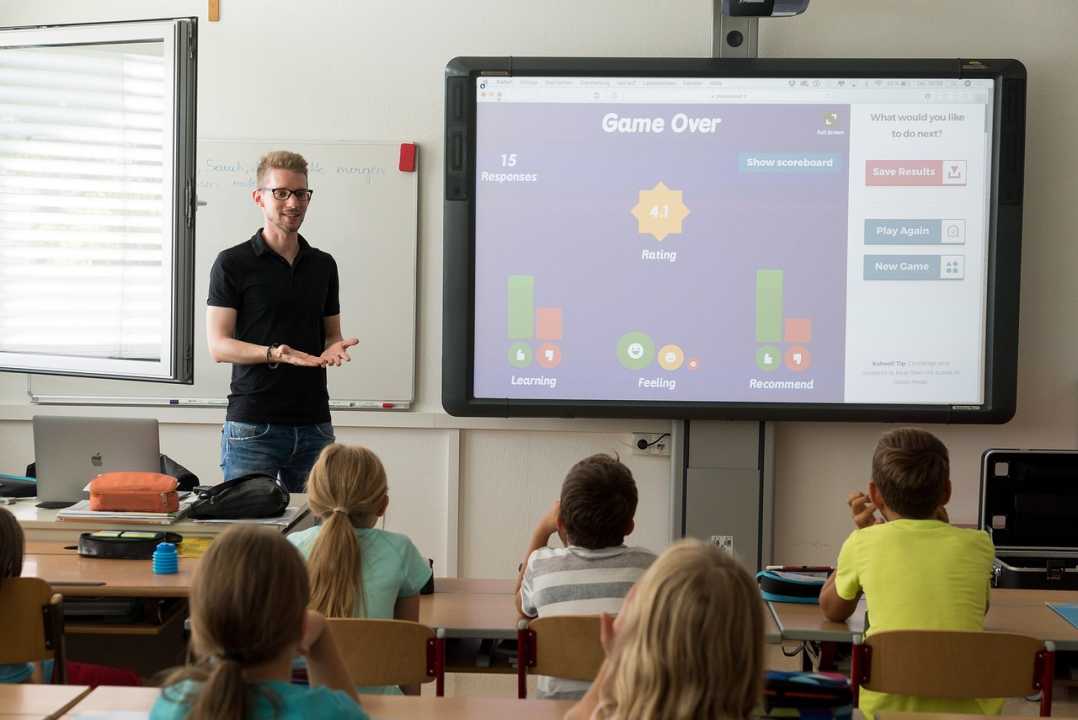Top 10 Important Roles Of Teachers In The World

The primary role of the teacher does not change over time. The teacher continues to guide learners with new information. But if you view teaching as a profession rather than a trade, you will begin to appreciate the complexity of a teacher's job.
Today, teachers' responsibility goes beyond simply expecting students to follow their instructions, a strategy that has been used for centuries. Teachers are now expected to provide their students with rich, unique, and responsive learning experiences. Learning is no longer limited to the classroom.
This happens at home, in communities, and in the physical and digital world at large. Information sources are no longer just regular books and educational materials; Information scattered everywhere.
Today's school administrators and employers must take a different approach when searching for teachers. Keep reading to understand the role of teachers in modern schools and how you can find the right educator for your school. Leading the way are thousands of current teachers who have changed course in every aspect of their careers. New techniques and tools, as well as increased responsibilities and expectations, have accelerated the pace of innovation in the industry. As a result, teachers have had to reinvent themselves and you, as an employer, should expect more than just pedagogical acumen from new teachers.
As we celebrate teachers day, it's important to write on the roles of teachers in shaping the academic well being of students. The main roles of teachers are:
Top 10 Important Roles Of Teachers In The World
- Give advice
- Inspire learners
- Nurture healthy curiosity in learners
- Create meaningful learning experiences
- Leverage technology to support learning
- Mediation and communication
- Find study strategies
1. Give advice

READ ALSO » Climate Change: 5 Importance Roles Of Forest In Combating The Biggest Health Threat
There is a direct connection between a competent and caring teacher and a confident and motivated learner. Students need to know that teachers care about how they learn and what facilitates or hinders the learning process.
Teachers should strive to understand each student's defining characteristics, including their specific social, economic, and cultural background, learning style, needs, abilities, aptitudes, and interests. .
Now the teacher's job is to nurture and mentor learners and help them understand their intellectual, emotional and social needs. Creating an emotionally mature and grounded learner will support academic success, allowing them to make better decisions and acquire and absorb knowledge.
2. Inspire learners

Teachers must be ready to intervene at any time to help students learn. Instead of seeing teachers as educators in specific subjects, such as science, language, or math, you want them to be creative and foster a love of learning in their students.
To achieve this goal, teachers must be able to leverage different teaching methods to support their students' learning styles and abilities. For example, they should encourage learners to take an active role in their learning. You can find educators who use non-traditional teaching methods by asking the right questions during the interview and paying attention to the answers.
3. Nurture healthy curiosity in learners
The best teachers master the art of nurturing healthy curiosity in their students. You should look for candidates who can create participatory lesson plans that include a variety of activities to support different learning styles. Teachers must see themselves as facilitators, guides, and co-learners in the educational process.
It is the teacher's responsibility to encourage students to take ownership of their learning journey. This happens when they engage rather than suppress students' natural curiosity. Look for candidates who can draw parallels between academic goals and life values, and design assessments to measure actual achievement rather than subject memorization.
4. Create meaningful learning experiences
READ ALSO » Top 10 Important Rules On How To Answer JAMB Questions 2023/2024
Students will be more cooperative if they have a say in the format and content of their program. Teachers can guide students in making study plans to achieve their goals. They can also help students decide how to demonstrate what they have learned.
Consider avoiding hiring teachers who view themselves as well-rounded instructors. You need faculty who can design engaging learning opportunities across a variety of media. The teacher's job is to organize and create meaningful experiences that help students solve real-world challenges every day.
These experiences give meaning to the theoretical ideas learned in class. They also provide opportunities to develop mental and physical skills and habits to help students achieve their educational goals.
Thanks to that, students no longer need to memorize abstract information from outdated textbooks. Now they can apply the knowledge they have learned to real-world challenges and actively participate in spreading this knowledge to other learners.
5. Leverage technology to support learning
New technologies have changed every aspect of life and education must take this into account to prepare students for the world beyond school. Old teaching methods are necessary because information is scarce. Teachers immerse themselves in the material while simultaneously instructing a large group. Nowadays, there is a lot of information from many sources. The goal of modern education is to help students analyze information, think critically, solve problems, interrogate sources of information, and make informed decisions.
With these changes, teachers can spend more time working in small groups or one-on-one with students to achieve these goals. Training can also help teachers understand how to use technology and devices to teach children.
6. Mediation and communication
Teachers are often required to liaise and mediate between different stakeholders in educational contexts. For example, students can ask teachers to help convey important information to parents or vice versa.
Likewise, teachers can provide valuable advice when the school board and parents disagree on school policies or strategic decisions. Working directly with administrators and parents, they act as mediators and represent the best interests of learners. In class, teachers can intervene to resolve conflicts between students or take measures in case students violate school rules. It is important to ask questions about each candidate's views on important school policies before hiring them. Asking them how they handle different situations will help you better understand their ability to mediate and act as a workplace liaison.
7. Find study strategies
READ ALSO » KWASU releases important notice to new students, 2021/2022 on matriculation numbers
Teachers must take the time to stay informed about changes that affect learning or education. The world is changing at a rapid pace and no teacher should be satisfied with what they know, even in their specialist subjects. The vast amount of information on all topics accelerates the pace of research and discovery.
Teachers should not let their guard down when teaching outdated principles that the world has changed. Research can help teachers appreciate the different learning dynamics in modern school environments. Armed with this knowledge, they can spend time mentoring new teachers to prepare them for the complexities of today's learning environment.
